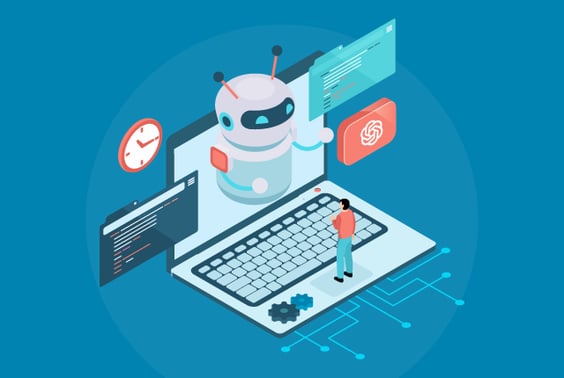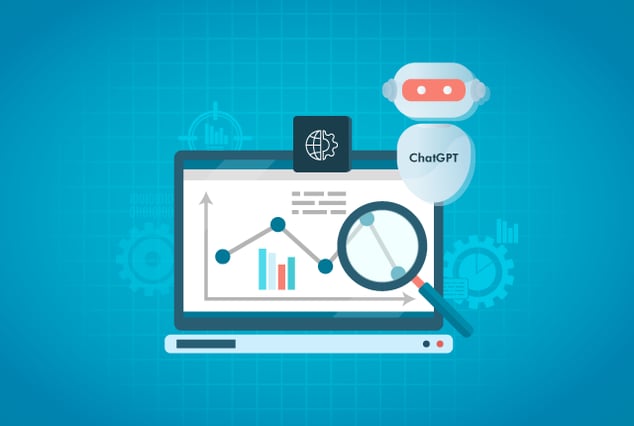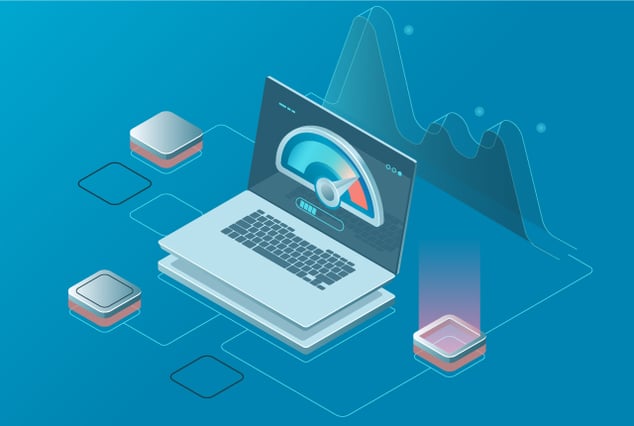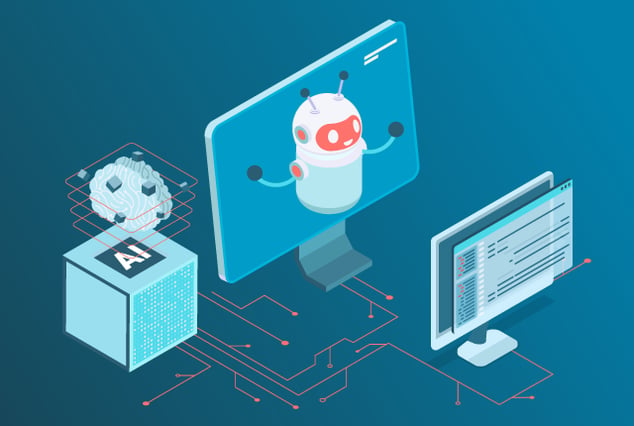
In the dynamic realm of software development, ensuring the quality and dependability of applications remains a paramount concern. Within this context, software testing emerges as a vital component, with test engineers diligently validating software functionality, performance, and user experience. As software systems become increasingly intricate, effective time management becomes imperative in the testing process.
This is where ChatGPT, an advanced model developed by OpenAI, comes into play. Boasting exceptional natural language processing capabilities, ChatGPT serves as a valuable ally for test engineers, offering the potential to save time, boost productivity, and optimize overall testing efficiency. With its ability to understand and generate human-like text responses, ChatGPT in software testing revolutionizes the way test engineers interact with software systems, ultimately leading to accelerated workflows and enhanced software quality.
What is ChatGPT?
ChatGPT is an advanced language model developed by OpenAI. It is built on the GPT-3.5 architecture and is designed to engage in conversational interactions with users. OpenAI ChatGPT leverages deep learning techniques to generate human-like responses based on the provided input. It has been trained on a diverse range of internet text sources to develop a broad understanding of language and context. ChatGPT can assist users by answering questions, providing explanations, offering suggestions, and engaging in interactive conversations across various domains and topics.
Importance of Time Management in Testing
Efficient time management plays a vital role in the testing process, leading to a range of potential benefits. By incorporating ChatGPT in software testing into their workflow, test engineers can capitalize on several advantages:
- Efficient Use of Time: One of the key aspects of time management in testing is the efficient use of available time. ChatGPT can assist in this regard by providing quick and accurate responses to test engineers' queries, eliminating the need for extensive manual research and analysis. Instead of spending valuable time searching for information, test engineers can rely on ChatGPT to provide relevant insights promptly.
- Improved Productivity: By automating repetitive tasks and providing intelligent insights, ChatGPT can significantly enhance the productivity of test engineers. Test case generation, data analysis, and documentation can be expedited with the assistance of ChatGPT, allowing test engineers to focus their efforts on more critical aspects of testing, such as complex issue investigation and test strategy formulation.
- Better Collaboration: ChatGPT can facilitate better collaboration among team members involved in the testing process. It can serve as a communication and knowledge-sharing tool, providing insights and suggestions to enhance collaboration and promote effective decision-making.
- Cost-effectiveness: Effective time management directly impacts the cost-effectiveness of the testing process. By leveraging ChatGPT's capabilities to save time on manual tasks, organizations can optimize resource allocation and reduce costs associated with labor-intensive efforts. The efficiency gained through ChatGPT enables test engineers to accomplish more in less time, resulting in cost savings for software development projects.
- Better Quality: Time management influences the overall quality of software deliverables. With ChatGPT's assistance, test engineers can allocate sufficient time and attention to comprehensive testing coverage. ChatGPT's ability to generate test cases, identify edge cases, and provide insights on potential risks can contribute to better quality assurance. By streamlining the testing process and eliminating manual errors, ChatGPT in software testing helps ensure a higher level of software quality.
- Faster Test Case Creation: ChatGPT can automate the generation of test cases, reducing the time and effort required for manual creation. It analyzes system behavior and requirements to generate a large number of test cases quickly, accelerating the testing process.
By recognizing the importance of time management and embracing ChatGPT's capabilities, test engineers can harness the potential benefits of increased productivity, cost-effectiveness, and improved software quality. In the following sections, we will explore specific examples of time management in the testing process and delve into how ChatGPT can contribute to each of these aspects.
Examples of Time-saving Benefits with ChatGPT
Let's explore specific examples of common testing tasks where ChatGPT can contribute to time savings:
- Test Case Generation: Creating test cases is a crucial part of the testing process. ChatGPT can assist in test case generation by analyzing requirements, understanding system behavior, and identifying potential test scenarios. By leveraging ChatGPT's capabilities, test engineers can save significant time in generating comprehensive test cases, ensuring broader coverage, and reducing the effort required for manual test case creation.
- Test Data Generation: Test data plays a vital role in executing test cases and validating software functionality. ChatGPT can aid in generating test data by understanding the test objectives and requirements, as well as the system under test. By automating test data generation, ChatGPT can save time that would otherwise be spent on manual data creation, allowing test engineers to focus on other critical tasks.
- Troubleshooting: During the testing process, test engineers often encounter issues and defects that require investigation and troubleshooting. ChatGPT can assist in this aspect by providing intelligent insights and potential solutions based on the information provided. By leveraging ChatGPT's troubleshooting capabilities, test engineers can save time in identifying the root cause of issues and exploring possible resolutions.
- Sharing Expertise: Collaboration and knowledge sharing are crucial in testing projects. ChatGPT can act as a virtual assistant, enabling test engineers to share their expertise and knowledge with other team members. By leveraging ChatGPT's NLP capabilities, test engineers can quickly document and communicate their insights, best practices, and recommendations, facilitating effective knowledge exchange and saving time in the process.
- Automation Code Generation: Automation testing is essential for efficient and repeatable testing processes. ChatGPT implementation can assist in generating boilerplate automation code by understanding the desired test objectives and the underlying system. By providing code snippets, test engineers can save time in writing automation scripts from scratch, accelerating the automation process and enabling quicker test execution.
Impact of ChatGPT on the Testing Process
The impact of ChatGPT on the overall testing process is significant, offering the potential for faster delivery times and improved productivity. By leveraging the capabilities of ChatGPT in software testing for tasks such as test data generation, test case generation, and troubleshooting, software development teams can streamline their testing processes and reduce the time and effort required for manual tasks. This, in turn, can lead to several benefits:
- Faster Delivery Times: ChatGPT automates various testing tasks, enabling faster completion of essential activities. Test data generation, which is often time-consuming, can be automated by ChatGPT, reducing the overall testing timeline. Similarly, test case generation, where ChatGPT can generate a large number of test cases quickly, contributes to accelerated testing cycles and shorter delivery times.
- Improved Productivity: By offloading repetitive and manual tasks to ChatGPT, testing teams can focus their expertise and efforts on higher-level activities that require human intelligence and decision-making. This improves the overall productivity of the team, as they can allocate their time and energy to more critical aspects of the testing process.
- Enhanced Efficiency: ChatGPT's ability to automate test data generation, test case generation, and troubleshooting helps teams work more efficiently. Test engineers can leverage the speed and accuracy of ChatGPT to perform these tasks, reducing the time and effort required compared to manual approaches. This efficiency allows for increased test coverage and better utilization of resources.
- Improved Quality: By reducing the time and effort required for manual tasks, ChatGPT allows test engineers to allocate more time to thorough testing and analysis. This leads to improved overall software quality as potential issues and defects are more effectively identified and addressed. ChatGPT can also provide intelligent insights and suggestions, further enhancing the quality of the testing process.
ChatGPT's impact on the overall testing process is transformative. Automating tasks such as test data generation, test case generation, and troubleshooting enables software development teams to streamline their testing efforts. This reduction in manual effort and time results in faster delivery times, improved productivity, enhanced efficiency, and ultimately higher-quality software development.
Case Studies: QASource Implementing ChatGPT in Testing Processes
Explore real-world examples of how QASource, a leading software testing company, has effectively integrated ChatGPT into testing workflows. Discover the tangible benefits and outcomes achieved through streamlined processes, enhanced efficiency, and improved results. These case studies showcase QASource's expertise in leveraging ChatGPT to elevate the testing journey. Gain valuable insights into the power of ChatGPT in driving testing success with QASource as your trusted partner:
-
Case Study 1
We have implemented ChatGPT in our testing process for test case generation. By leveraging the capabilities of ChatGPT, QASource was able to generate a large number of test cases covering a wide range of edge cases and scenarios. This automation significantly reduced the time and effort previously required for manual test case creation, resulting in a remarkable 30% reduction in the overall time spent on test case generation.
-
Case Study 2
Utilized ChatGPT for troubleshooting purposes in their testing process. When encountering errors or issues, QASource turned to ChatGPT for assistance. By providing relevant details about the problem, ChatGPT generated potential solutions and recommendations. This streamlined the troubleshooting process, reducing the time required for manual investigation and problem resolution by 30%.
-
Case Study 3
Adopted ChatGPT for automation code generation in their testing process. By inputting specific requirements and parameters, ChatGPT generated code snippets that automated repetitive tasks. This eliminated the need for manual code writing, resulting in a noteworthy 20% reduction in the overall time required for code generation and accelerating the testing process.
These case studies highlight the successful implementation of ChatGPT in our testing processes, leading to significant time savings across various testing tasks. By leveraging the capabilities of ChatGPT, QASource has optimized its workflows, reduced manual effort, and improved overall productivity. The time saved can be allocated to higher-level testing activities, enhancing the quality and efficiency of the software development process.
Note: It's important to consider that the reduction in time achieved through the use of ChatGPT in testing processes can vary based on several factors:
- Complexity of Tasks: The complexity of the testing tasks at hand can influence the time savings achieved with ChatGPT. More complex tasks may require additional time and effort, even with the assistance of AI-powered tools.
- Quality of Training Data: The quality and relevance of the training data used to train the ChatGPT model can impact its performance. High-quality training data that accurately represents the testing domain and scenarios can lead to more accurate and useful results, resulting in improved time savings.
- Accuracy of Results: The accuracy of the generated outputs by ChatGPT is crucial. While ChatGPT is designed to provide valuable insights and assistance, there may be instances where the generated results require validation or further refinement. Ensuring the accuracy of the results can contribute to effective time management.
By considering these factors and optimizing them, testing teams can maximize the benefits and time-saving potential of ChatGPT in their testing processes.
Best Practices for Integrating ChatGPT into the Testing Workflow
Some Best practices for integrating ChatGPT into the testing workflow and maximizing its time-saving potential are as follows:
- Identify Specific Use Cases: When incorporating ChatGPT into the testing process, it is crucial to identify specific use cases where the tool can be effectively utilized. This targeted approach allows you to focus on areas where ChatGPT can provide the most value and prioritize its implementation accordingly.
- Utilize the Model Effectively: To maximize the time-saving potential of ChatGPT, it is essential to use the model effectively. This involves training the model with high-quality data, fine-tuning it for specific testing use cases, and integrating it seamlessly with other testing tools and processes.
- Leverage ChatGPT for Exploratory Testing: ChatGPT can be particularly valuable for exploratory testing, where testers need to rapidly generate test cases and scenarios based on limited information. By harnessing the power of natural language processing, ChatGPT empowers testers to generate test cases, explore the software from different angles, and uncover potential issues efficiently.
- Involve Subject Matter Experts: Involving subject matter experts in the implementation process is critical. Their expertise helps identify key testing scenarios, edge cases, and critical areas that require thorough examination. Subject matter experts can also provide valuable feedback on the accuracy and relevance of ChatGPT's results, ensuring its alignment with the testing objectives.
- Continuously Evaluate and Refine the Testing Process: Continuous evaluation and refinement of the testing process are vital for optimizing the benefits of ChatGPT. Regularly monitor the effectiveness of ChatGPT, identify areas for improvement, and make necessary adjustments to enhance its performance and contribution to time savings.
- Validate the Results: While ChatGPT is a powerful tool, it is important to validate its results. Verification and validation processes help ensure the accuracy, reliability, and relevance of the generated outputs, allowing testers to make informed decisions based on reliable insights.
Challenges in Leveraging ChatGPT for Testing and Strategies for Overcoming Them
When organizations incorporate ChatGPT into their testing processes, they may face certain limitations and challenges. However, these challenges can be addressed through the implementation of effective strategies. Here are some potential limitations or challenges of using ChatGPT in testing, along with strategies to overcome them:
- Limited Domain Knowledge: ChatGPT's effectiveness is dependent on the extent of its training data and exposure to specific domains. In complex or highly specialized domains, ChatGPT may lack the necessary domain-specific knowledge. To overcome this, it is crucial to supplement ChatGPT with domain-specific training data and involve subject matter experts who can provide additional insights and guidance.
- Lack of Context: ChatGPT may struggle with understanding the context of a particular testing scenario, especially if it involves nuanced or intricate details. Testers need to provide clear and concise instructions to mitigate this challenge. Providing additional context, background information, or examples can help ChatGPT generate more accurate and contextually relevant responses.
- Biased Data: If the training data used for ChatGPT is biased or lacks diversity, it can impact the quality and fairness of its outputs. To address this, it is important to ensure that the training data is well-curated, diverse, and representative of various perspectives. Regularly evaluate and update the training data to minimize biases and enhance the overall reliability of ChatGPT's responses.
- Lack of Emotional Intelligence: ChatGPT may struggle to comprehend and respond appropriately to emotional cues or sentiments expressed in testing scenarios. Testers should be aware of this limitation and interpret ChatGPT's responses accordingly. When dealing with emotionally sensitive issues, human judgement and empathy should be applied to ensure effective and considerate communication.
- Inability to Handle Ambiguity: ChatGPT may struggle when faced with ambiguous or vague instructions or scenarios. To mitigate this, testers should strive to provide clear, specific, and unambiguous queries or prompts. Breaking down complex questions or scenarios into simpler parts can help ChatGPT better understand and generate more accurate responses.
- Dependence on Training Data Quality: ChatGPT heavily relies on the quality and relevance of its training data. Inaccurate or inadequate training data can lead to unreliable or erroneous outputs. It is crucial to invest time and effort in curating high-quality training data that encompasses a wide range of relevant scenarios and use cases.
- Need for Constant Updating: AI models like ChatGPT evolve over time, and new versions or updates may be released. It is important to stay up-to-date with the latest advancements and improvements in ChatGPT's capabilities. Regularly assess the performance of the model and consider incorporating new updates or versions to benefit from enhanced functionality and accuracy.
QASource's Role in Deploying ChatGPT in Your System
To unlock the full potential of ChatGPT, organizations can rely on the expertise of QASource, a trusted software testing company. We guide organizations in identifying specific use cases where ChatGPT can deliver maximum value. We ensure the seamless integration of ChatGPT into the testing workflow, enabling organizations to optimize its usage and achieve their goals. We collaborate closely with subject matter experts, enriching ChatGPT's knowledge and contextual understanding. By training the model with domain-specific expertise and refining the testing process, we ensure accurate and valuable results from ChatGPT.
Continual evaluation and refinement are at the core of QASource's approach. We validate ChatGPT's generated results and make necessary adjustments to enhance accuracy and effectiveness over time. This iterative process ensures sustained time-saving benefits for organizations. ChatGPT, with QASource's expertise, revolutionizes the testing process, delivering efficiency, speed, and reliability. Test engineers can leverage ChatGPT to automate tasks, gain intelligent insights, and drive faster software development, ultimately achieving their testing goals with ease.
Conclusion
In conclusion, ChatGPT provides a compelling solution for test engineers to optimize their time in the testing process. By harnessing the capabilities of AI and natural language processing, ChatGPT automates tasks, accelerates test execution, and delivers valuable insights into test results. This empowers test engineers to enhance their productivity and drive faster, more reliable software development.
To unlock the full potential of ChatGPT and ensure successful implementation, QASource offers expertise and support. Our team of experienced professionals can guide your organization in leveraging ChatGPT effectively, tailoring its application to your specific testing needs. Contact QASource now to explore how our services can help you harness the power of ChatGPT and revolutionize your testing workflow.
Note: It is crucial to understand that ChatGPT should not be seen as a substitute for human experts in the testing process. While ChatGPT can significantly enhance productivity and streamline testing activities, the unique skills and experience of human testers are indispensable for comprehensive analysis, critical thinking, and making informed decisions. Collaboration between ChatGPT and human experts can unleash the full potential of AI-powered testing, leading to more efficient and reliable software development.


